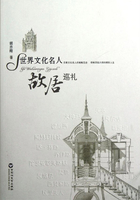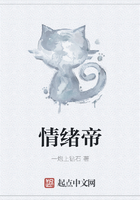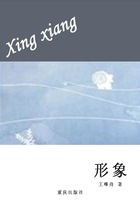Rabelais made her "die of laughter," she found Plutarch admirable, enjoyed Tacitus as keenly as did Mme. Roland a century later, read Josephus and Lucian, dipped into the history of the crusades and of the iconoclasts, of the holy fathers and of the saints. She preferred the history of France to that of Rome because she had "neither relatives nor friends in the latter place." She finds the music of Lulli celestial and the preaching of Bourdaloue divine. Racine she did not quite appreciate. In his youth, she said he wrote tragedies for Champmesle and not for posterity. Later she modified her opinion, but Corneille held always the first place in her affection. She had a great love for books on morals, read and reread the essays of Nicole, which she found a perpetual resource against the ills of life -- even rain and bad weather. St. Augustine she reads with pleasure, and she is charmed with Bossuet and Pascal; but she is not very devout, though she often tries to be. There is a serious naivete in all her efforts in this direction. She seems to have always one eye upon the world while she prays, and she mourns over her own lack of devotion. "I wish my heart were for God as it is for you," she writes to her daughter. "I am neither of God nor of the devil," she says again; "that state troubles me though, between ourselves, I find it the most natural in the world." Her reason quickly pierces to the heart of superstition; sometimes she cannot help a touch of sarcasm. "I fear that this trappe, which wishes to pass humanity, may become a lunatic asylum," she says. She believes little in saints and processions. Over the high altar of her chapel she writes SOLI DEO HONOR ET GLORIA.
"It is the way to make no one jealous," she remarks.
She was rather inclined toward Jansenism, but she could not fathom all the subtleties of her friends the Port Royalists, and begged them to "have the kindness, out of pity for her, to thicken their religion a little as it evaporated in so much reasoning." As she grows older the tone of seriousness is more perceptible. "If I could only live two hundred years," she writes, "it seems to me that I might be an admirable person."
The rationalistic tendencies of Mme. de Grignan give her some anxiety, and she rallies her often upon the doubtful philosophy of her PERE DESCARTES. She could not admit a theory which pretended to prove that her dog Marphise had no soul, and she insisted that if the Cartesians had any desire to go to heaven, it was out of curiosity. "Talk to the Cardinal (de Retz) a little of your MACHINES; machines that love, machines that have a choice for some one, machines that are jealous, machines that fear. ALLEZ, ALLEZ, you are jesting! Descartes never intended to make us believe all that."
In her youth Mme. de Sevigne did not like the country because it was windy and spoiled her beautiful complexion; perhaps, too, because it was lonely. But with her happy gift of adaptation she came to love its tranquillity. She went often to the solitary old family chateau in Brittany to make economies and to retrieve the fortune which suffered successively from the reckless extravagance of her husband and son, and from the expensive tastes of the Comte de Grignan, who was acting governor of Provence, and lived in a state much too magnificent for his resources. Of her life at The Rocks she has left us many exquisite pictures. "I go out into the pleasant avenues; I have a footman who follows me; I have books, I change place, I vary the direction of my promenade; a book of devotion, a book of history; one changes from one to the other; that gives diversion; one dreams a little of God, of his providence; one possesses one's soul, one thinks of the future."
She embellishes her park, superintends the planting of trees, and "a labyrinth from which one could not extricate one's self without the thread of Ariadne;" she fills her garden with orange trees and jessamine until the air is so perfumed that she imagines herself in Provence. She sits in the shade and embroiders while her son "reads trifles, comedies which he plays like Moliere, verses, romances, tales; he is very amusing, he has esprit, he is appreciative, he entertains us." She notes the changing color of the leaves, the budding of the springtime. "It seems to me that in case of need I should know very well how to make a spring," she writes. She loves too the "fine, crystal days of autumn." Sometimes, in the evening, she has "gray-brown thoughts which grow black at night," but she never dwells upon these. Her "habitual thought--that which one must have for God, if one does his duty"--is for her daughter. "My dear child," she writes, "it is only you that I prefer to the tranquil repose I enjoy here."
If her own soul is open to us in all its variable and charming moods, we also catch in her letters many unconscious reflections of her daughter's character. She offers her a little needed worldly advice. "Try, my child," she says, "to adjust yourself to the manners and customs of the people with whom you live; adapt yourself to that which is not bad; do not be disgusted with that which is only mediocre; make a pleasure of that which is not ridiculous." She entreats her to love the little Pauline and not to scold her, nor send her away to the convent as she did her sister Marie-Blanche. With what infinite tenderness she always speaks of this child, smiling at her small outbursts of temper, soothing her little griefs, and giving wise counsels about her education. Evidently she doubted the patience of the mother.
"You do not yet too well comprehend maternal love," she writes;
"so much the better, my child; it is violent."













